QuestionQUESTION: I am the proud owner of 2 german shepherd mixes. One is my Big boy Zuke, who is 3. He is a german shepherd/akita mix. He is perfect! the problem lies with our new baby girl. She is 3/4 German shepherd 1/4 rottweiler. She is 9 weeks old now. We have had her for 3 weeks now. We allow Zuke to sleep in our room because he is completely housetrained. However, Kiva sleeps in a crate in the laundry room. She cries all night long. I thought she would get used to it, but its been 3 weeks and she still cries all night. She even gets in it by herself at night, yet she still cries. Thats the first problem
Second problem. She is always snapping at us. Her tail will be wagging and shell be licking our hands, and then the next moment she snaps at our face. Shell be licking our hands, then bites them, and it really hurts. Why is she behaving like this?
Shes a very intelligent dog, and we do love her. But i jut cant deal with behavior like this. I havent gotta a good nights sleep in 3 weeks and its just wearing on me now. what ever you can offer, it would be much appreciated.
thanks!
ANSWER: The behavior you describe, in terms of the dog's over excitement and "biting", is seen in puppies from dams (mothers) who are in hugely stressful situations (the "pound", the backyard, the basement) and communicate fear to their puppies. A wagging tail means nothing unless you can gauge the tail set and speed; a dog can (and does) wag its tail while biting, chasing, etc. A rapidly wagging tail (in high or low set) is an indication of emotional excitement, not friendliness; the "friendly" tail set is body height and waves slowly back and forth ("happy tail"). You cannot judge a dog by its tail.
Her constant snapping seems an indication of her high anxiety. This puppy is not secure. Crating her for the purpose of house training is not acceptable for long hours House training is a conditioned response to your REWARDING her APPROPRIATE elimination EVERY TIME she demonstrates it. A nine week old female dog is incapable of being house trained, physiologically; she requires at least another two months until she can control her physical urge to urinate (unlike the very well bred and tended male puppy, who can be successfully house trained by ten to twelve weeks: the uterus adds extra pressure to the bladder). She can be TRYING VERY HARD right now and actually succeeding much of the time, but there will be "accidents" for quite a while. If you must contain her overnight in a crate, move the crate into your bedroom (for the next two months). This puppy is not emotionally able to be on her own so far from you and your other dog, it is harming her ability to build trust in you and her ability to feel part of your "family". Whether or not her temperament will allow her to remain in your bedroom is not something I can tell you (not having met her), but for RIGHT NOW it can't hurt...even if she still cries. You're losing sleep anyway. Do not respond to her whining once she is in the crate but DO NOT EXPECT THIS VERY YOUNG PUPPY TO GO THROUGH THE NIGHT IN A CRATE! You must GET UP and take her out (when she is NOT CRYING) to eliminate at some mid-point during the night for at least another month (just as you would get up for a human infant!) This is all part of being the owner of a PUPPY!
In terms of her snapping/biting: if she jumps up at your face with a snap of the jaws, TURN AWAY IMMEDIATELY. IGNORE HER for ten seconds, turn back, repeat this every single time she offers this behavior. Read about positive reinforcement training (Karen Pryor's web site, Patricia McConnell Ph.D.'s book on topic) and teach this puppy to sit on command (VERY EASY TO DO with a young pup). When she has stopped jumping up to snap, ask her to "sit" and REWARD it. She will then have a behavior she can SUCCEED at. Mouthing (biting) hands can be easily extinguished by your yelping (very high pitched); puppies this age are biologically programmed to respond to that sound and SHE WILL STOP immediately, unless she is overly stimulated (which means you are interacting with her inappropriately.) This puppy was apparently removed from her littermates and dam FAR too early and has not learned that TEETH HURT. She's not showing aggression; she's showing immature hyper excitement. Do not play rough with her AT ALL; teach her behaviors she can offer for reward (with positive reinforcement); treat her with CALM, consistent, patience and affection (without going overboard on the affection, her breed mix needs calm leadership, not slavery.) Repost with further questions.
---------- FOLLOW-UP ----------
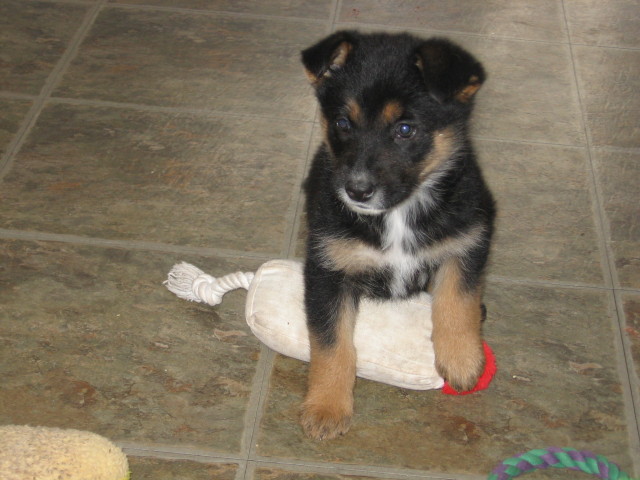 Kiva
Kiva
QUESTION: Thank you so much. Before I received your answer, we had already moved the crate into our room. She squealed the first night, so I moved her to the bathroom (which is conjoined to our bedroom in a huge open space) with our other dog with a gate up. She did really well in that situation. Next night, we talk her on a long walk. When she began to fall asleep, we brought her to her crate, and she did not whine ONCE all night. I did take her out to go potty. So, she did really well the second night, and were going to keep practicing it.
She is doing much better with the snapping. Weve been yelping when she does, and we are alrady seeing improvements. She can sit perfectly on command, and we almost have down. I just realized that Im not going to get a perfect dog everytime (my zuke is the best dog in the world!) and she need much more work then zuke ever did. But she is apart of this family, and I am going to stick it through til the end.
What do you think are the most proper ways to house train a dog? She likes to chew on shoes, and i always give her an appropriate toy, but she always goes back to the shoes! I keep them in our closet for the most part, but if one is out, or we have guests, shes chewing.
any info you can give me on how to raise the perfect puppy would be great! id like to say that i know how to raise the perfect dog (zuke turned out so well) but most of it was him. He taught US how to high-five and shake. (im not joking!) i think i need direction on how to raise Kiva. She really stubborn, and i just want the best possible way for her.
thanks!
AnswerLike many parents of two human children, you're learning that it isn't always THE SAME for each one! lol
You've done very well so far with Kiva; the fact that she is learning to respond to "commands" is an excellent sign that her over excitement is NOT out of control and most likely a part of her immaturity and very poor beginning (with her dam in the situation where she was whelped.)
The best way to obtain as close to a "perfect" dog as possible is to imagine what you WANT THE DOG TO BE and then slowly, with positive reinforcement training and behavior modification, shape that dog. IGNORE WHAT YOU DON'T WANT, REWARD WHAT YOU DO WANT! That's so simple, but it's really key. Some dogs come to us with inherited behavioral and physiological problems, some of which can be fixed, others of which cannot. Some behavioral problems are acquired by very young puppies from their dams who are in dire circumstances. The ONE behavior you do NOT want to see develop is any sort of aggression; most puppies do not demonstrate aggression, but I've seen many (of certain breeds) who have. Even THAT can be remedied. Your puppy is in the middle of a fear phase; it's developmental and normal (the age when pups leave the den and begin to interact with the world requires they have an especially keen awareness of possible danger, ergo the fear phase.) This can develop from 8 to 10 weeks and can last up to 12 weeks of age. So tread softly; no harsh voices or negative responses. Positive response (reward and praise) to what YOU WANT, ignoring what you do not want, will produce a happy, well adjusted dog who will attempt to please within its ability.
Regarding house training, again the rule: reward WHAT YOU WANT, ignore what you DO NOT want. Take the puppy out often (every 90 minutes) for the next few weeks until you see a pattern of need to urinate, and then reduce it slowly. After she awakens (even from a nap), after she's played hard, after she's interacted in any situation that elicits excitement, and very last thing at night, take her out. REWARD with a tidbit of food and lavish praise every single time she urinates or defecates outdoors; give her ample time to do so; observe her closely when indoors== puppies circle when they have to pee. if you see her beginning to circle indoors, interrupt with a clap of your hands and then happily lead her outdoors and give her ample time to finish. There WILL be accidents; do NOT clean them up in sight of the puppy (dams clean up after their puppies and this can confuse the puppy.) Don't make a big deal out of accidents; the more she is rewarded, and the more opportunity she has to eliminate outdoors, the more she will begin to CHOOSE to eliminate outdoors. She also has an adult dog to follow, and he will help to teach her what is appropriate. praising HIM for urinating outdoors IN HER SIGHT will help; dogs DO learn from observing other dogs. Please repost with any further questions.


 puppy problems
QuestionQUESTION: I am the proud owner of 2 german shep
puppy problems
QuestionQUESTION: I am the proud owner of 2 german shep
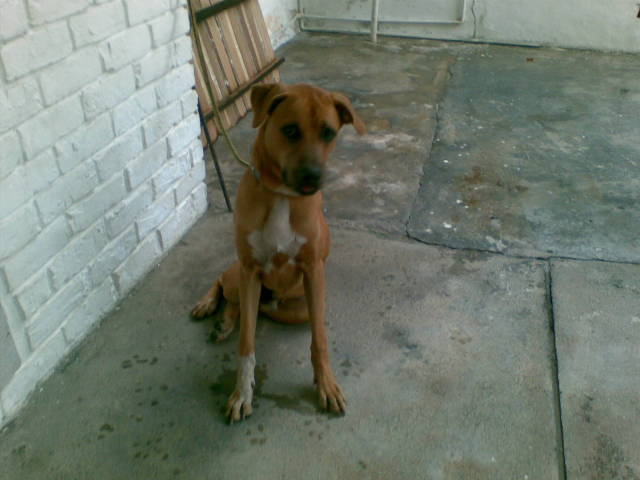 dogs behaviour
QuestionMy 8 months old Dusto
QUESTION: My puppy
dogs behaviour
QuestionMy 8 months old Dusto
QUESTION: My puppy
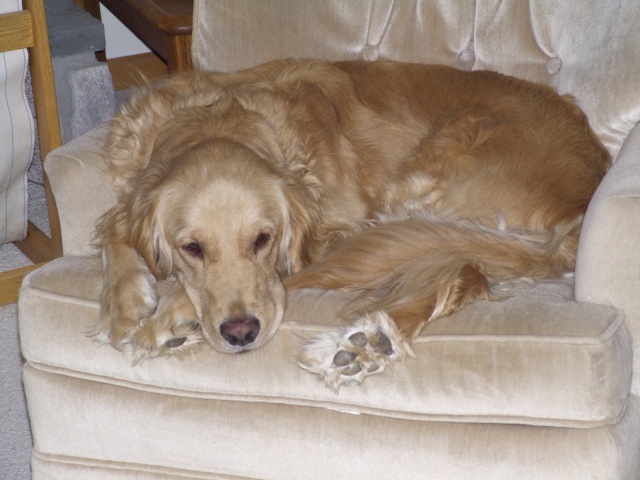 aggression in aging dog
Question
Niko
I have a thirteen year old, female, Samoy
aggression in aging dog
Question
Niko
I have a thirteen year old, female, Samoy
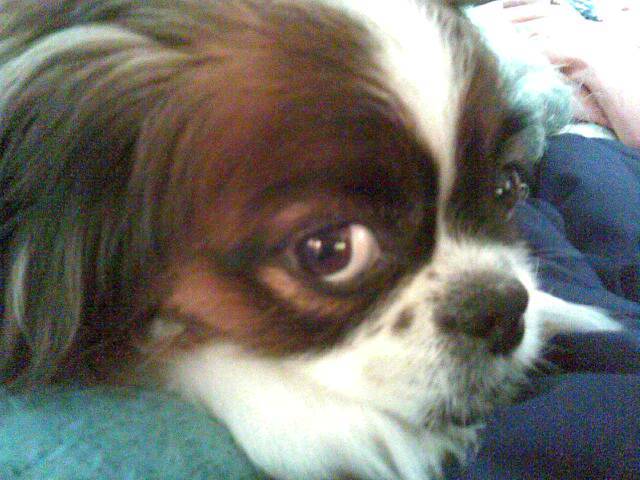 Post bladder surgery potty training for INDOORS!
QuestionTiki
QUESTION: Dear Dr. Connor,
My 10 ye
Post bladder surgery potty training for INDOORS!
QuestionTiki
QUESTION: Dear Dr. Connor,
My 10 ye
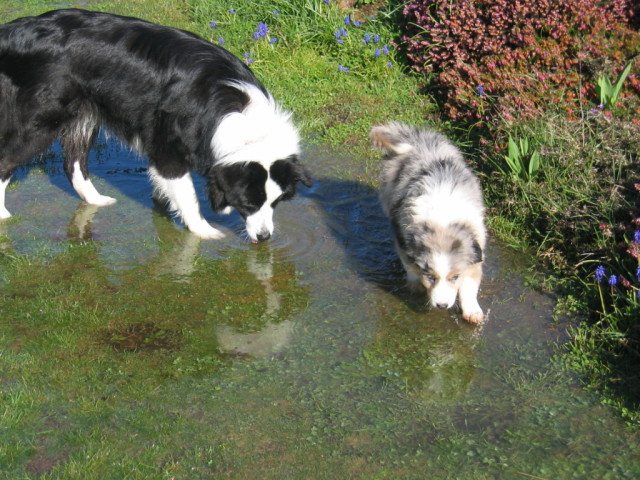 Dog in Heat?
QuestionLily and Jorge
QUESTION: Hello,
We have
Dog in Heat?
QuestionLily and Jorge
QUESTION: Hello,
We have